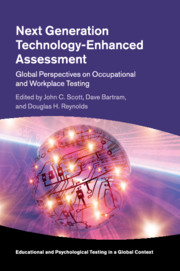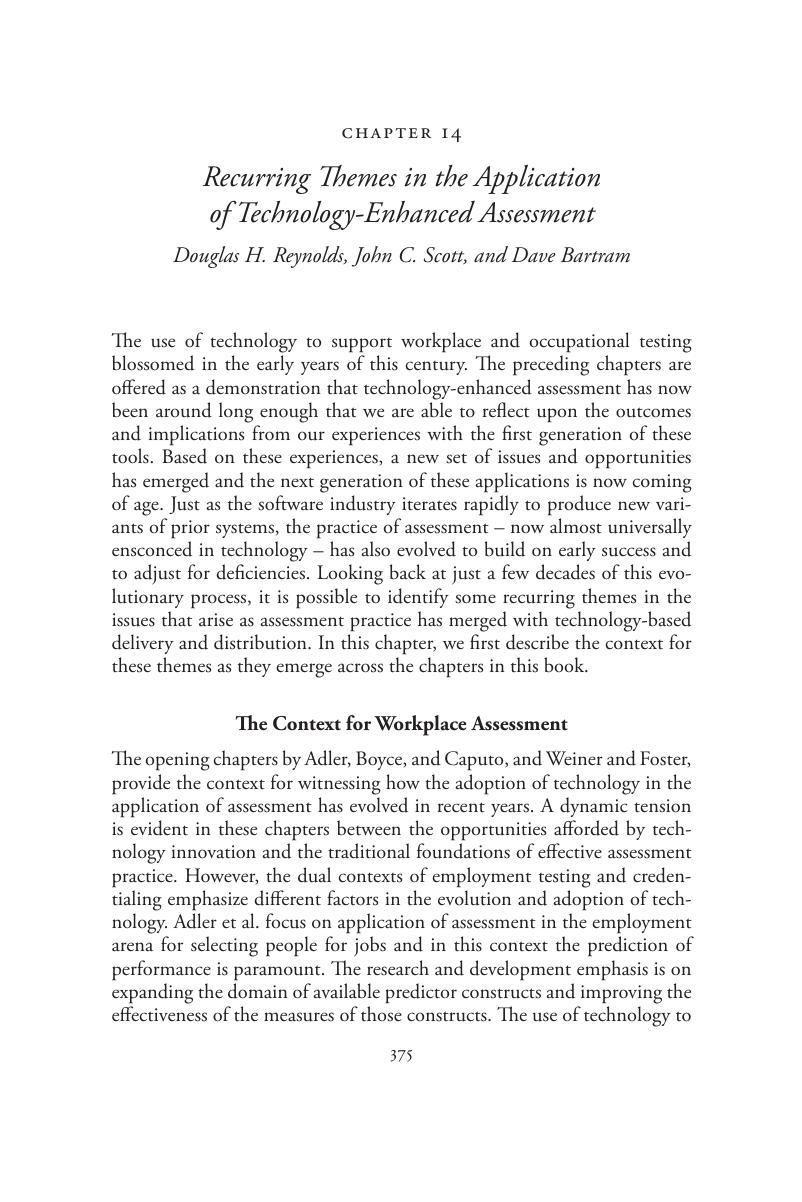 Next Generation Technology-Enhanced Assessment
Next Generation Technology-Enhanced Assessment Book contents
- Next Generation Technology-Enhanced Assessment
- Next Generation Technology-Enhanced Assessment
- Copyright page
- Contents
- Notes on Contributors
- Series Editor’s Foreword
- Preface
- Part I Common Assessment Methods Deployed with Internet Technology
- Part II Technical Foundations for Internet-Based Assessment Delivery
- Part III Advances, Trends, and Issues
- Part IV Guidelines for Practice and Future Directions
- Chapter 12 Standards and Best Practices for Technology-Enhanced Assessments
- Chapter 13 Ethical and Legal Concerns in Internet-Based Testing
- Chapter 14 Recurring Themes in the Application of Technology-Enhanced Assessment
- Index
- References
Chapter 14 - Recurring Themes in the Application of Technology-Enhanced Assessment
from Part IV - Guidelines for Practice and Future Directions
Published online by Cambridge University Press: 18 December 2017
- Next Generation Technology-Enhanced Assessment
- Next Generation Technology-Enhanced Assessment
- Copyright page
- Contents
- Notes on Contributors
- Series Editor’s Foreword
- Preface
- Part I Common Assessment Methods Deployed with Internet Technology
- Part II Technical Foundations for Internet-Based Assessment Delivery
- Part III Advances, Trends, and Issues
- Part IV Guidelines for Practice and Future Directions
- Chapter 12 Standards and Best Practices for Technology-Enhanced Assessments
- Chapter 13 Ethical and Legal Concerns in Internet-Based Testing
- Chapter 14 Recurring Themes in the Application of Technology-Enhanced Assessment
- Index
- References
Summary

Information
- Type
- Chapter
- Information
- Next Generation Technology-Enhanced AssessmentGlobal Perspectives on Occupational and Workplace Testing, pp. 375 - 394Publisher: Cambridge University PressPrint publication year: 2017